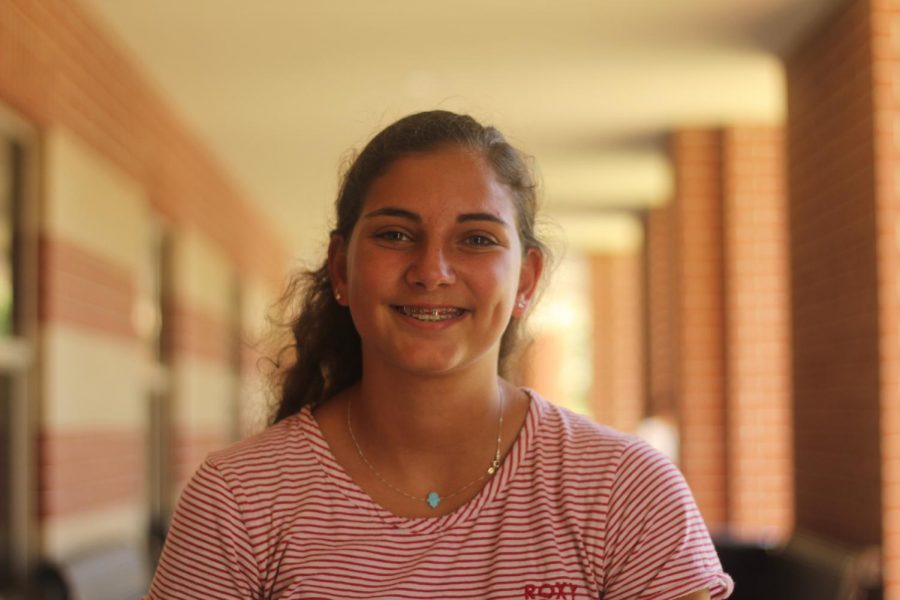What Rosh Hashanah means to me
October 5, 2019
The wicked or the righteous.
Rosh Hashanah determines that for me and my family as we practice Judaism. Rosh Hashanah is the start of the new year in the Hebrew calendar, which is different than the calendar we normally use. This two-day event in U.S. is the time that we pray for forgiveness for whatever sins we have done during the year.
Then there are the three books — kind of like a “Naughty of Nice List” for Christmas. During Rosh Hashanah, G-d — the Jewish religion does not spell out His name — opens three books which record the fate of the righteous, intermediate and wicked people.
Instead of the Christmas celebration where your behavior determines if you get a gift or not, Rosh Hoshanah determines your life.
Because it’s such an important event in our religious life, Jews take off school or work to go to synagogue and pray during the time of Rosh Hoshanah. The services are often a few hours long but can be very different depending on which group of Jews you fall into — Reformed, Conservative or Orthodox synagogues — or whether you attend Chabad, a type of orthodox.
Wherever you attend for Rosh Hashanah, everyone hears the Shofar, a ram’s horn that is blown during the service. The shofar blower is required to hit four notes, serving as a reminder that G-d is our king.
If you attend a Reformed congregation, you will see men and women sitting together with a service in all English. At a Conservative synagogue, men, and women also sit together with a service that is half Hebrew and half English. At the Orthodox, the services have men and women separated and consist of all Hebrew readings — no English at all. And at Chabad, men and women are separated and there is about 25% English and 75% Hebrew.
In my family, we are Orthodox. My family used to attend the Orthodox synagogue for decades, but slowly we have been switching over to Chabad. On the first day of Rosh Hashanah, my parents and I attend the Chabad, while other members of our family switched off between going to Chabad and Orthodox.
My grandparents go to Orthodox synagogue the first day, and usually two of my uncles will go with them to make sure my Grandad doesn’t sit by himself. We used to all go to Orthodox, but we were too loud once and were ‘politely’ asked to leave. While they go to Orthodox, my other uncle comes to Chabad with my aunt and younger cousin.
At both places, my family leaves after they blow the shofar, which is usually after an hour and a half to three hours. While services are going on, my parents and other relatives sit and participate in it, and I either join them or bring my cousin to the little kids room and help out there. This year my five-year-old cousin was being moody, so we had to join the service. She snored through the whole thing.
After, we sometimes will go out to lunch, or we go home and relax. Around 6 p.m., we meet at my grandparents and have apples and honey, which symbolizes a sweet new year, and a huge dinner.
We also make challah — a Jewish bread — in a round shape to represent the crown of G-d. Every year, I get into a matzo-ball eating contest with my Uncle Steve, which means I never actually eat the dinner. (Just in case you’ve never had one, it’s a ball of grain and egg — delicious.)
On the second day of Rosh Hashanah, we go through the same process, only the people who attend changes. On this day, we all go to Chabad, except my mom, aunt and cousin don’t come and my grandparents and uncles come. This year on the first day there were over 550 people the first day, and less than 100 the second.
Ten days after Rosh Hashanah is Yom Kippur. Yom Kippur is the most important day of the year for Jews. It marks the last day that books are open and lasts for about 26 hours.
The night before Yom Kippur, we all go to my grandmom’s house and eat a lot of food since on Yom Kippur the majority of us don’t eat. (Yom Kippur is the last day you have to pray for forgiveness — it’s a much more solemn day than Rosh Hoshanah.) In the morning, we get up and go to Chabad, with our stomachs growling the whole time.
On Yom Kippur, there are a lot of restrictions on what we can and can’t do, but the main things to follow is don’t eat, drink or wear leather. Instead, we attend synagogue to pray for forgiveness.
Fasting is the most important part of Yom Kippur, and everyone over Bar or Bat Mitzvah age (over 12 to 13) has to, unless they have a medical excuse not to. In my family, everyone except for my cousin, mom and aunt fast.
After services, we all go home and relax until we can go to my grandmom’s for break-fast. Most people break the fast after sundown, and eat. For my family, once we see the first three stars in the sky, we break the fast and eat.
It’s a time of celebration for the new year and reflection and forgiveness. They are three of the most important days in my life.
